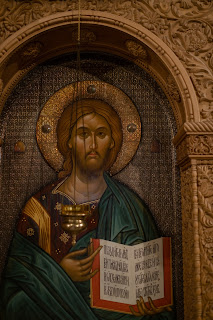On Hesychasm
Hesychasm is a spiritual practice that originated within the Orthodox Church, but it has gained attention from non-Orthodox people in recent years. The word "hesychasm" comes from the Greek word "hesychia," meaning silence or stillness, and refers to a method of prayer and contemplation that seeks inner peace and communion with God. In this article, we will explore the origins, principles, and benefits of hesychasm both within the Orthodox Church and among non-Orthodox people.
Origins of Hesychasm in the Orthodox Church
The roots of hesychasm can be traced back to the early Christian Desert Fathers who sought a life of prayer and contemplation in the deserts of Egypt and Palestine. These early ascetics believed that silence, stillness, and solitude were essential to encountering God and discovering the true meaning of life. They developed a spiritual tradition of "prayer of the heart" or "Jesus Prayer," which involved repeating the phrase "Lord Jesus Christ, Son of God, have mercy on me, a sinner" as a way of focusing the mind and heart on God.
Over time, this spiritual tradition evolved into what became known as hesychasm. It was developed and refined by St. Gregory Palamas, a 14th-century theologian and monk who taught that through prayer and contemplation, one could experience the uncreated divine light of God. Palamas's teachings were controversial and led to a split in the Orthodox Church, but his ideas eventually became widely accepted and continue to influence Orthodox spirituality to this day.
Principles of Hesychasm
Hesychasm is a spiritual practice that emphasizes the importance of stillness, silence, and solitude as a means of encountering God. Its main principles include:
Prayer of the Heart: Hesychasm emphasizes the repetition of the "Jesus Prayer" as a way of focusing the mind and heart on God. The prayer is said to be a continuous prayer that should be repeated throughout the day, both in times of stillness and during daily activities.
Stillness and Solitude: Hesychasm emphasizes the importance of stillness and solitude as a means of encountering God. Practitioners are encouraged to withdraw from the distractions of the world and create a quiet space for prayer and contemplation.
Inner Peace and Communion with God: The goal of hesychasm is to experience inner peace and communion with God. Through prayer and contemplation, practitioners seek to encounter the uncreated divine light of God and experience a deep sense of peace and joy.
Benefits of Hesychasm
The practice of hesychasm has many benefits for both spiritual and physical health. Some of the benefits include:
Reduced Stress and Anxiety: Hesychasm emphasizes the importance of stillness and solitude, which can help reduce stress and anxiety. By creating a quiet space for prayer and contemplation, practitioners can experience a deep sense of peace and calm.
Increased Focus and Clarity: The repetition of the "Jesus Prayer" can help focus the mind and bring clarity to one's thoughts. This can be especially helpful during times of stress or confusion.
Greater Sense of Purpose and Meaning: Hesychasm can help practitioners find a greater sense of purpose and meaning in their lives. By seeking communion with God, they can discover the true meaning of life and find a sense of fulfillment that transcends the material world.
Hesychasm Among Non-Orthodox People
In recent years, the practice of hesychasm has gained attention from non-Orthodox people who are seeking a deeper connection with God. While hesychasm is deeply rooted in Orthodox theology and tradition, its principles and practices can be adapted to fit the needs of non-Orthodox people




Comments
Post a Comment